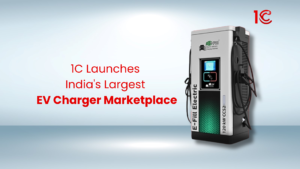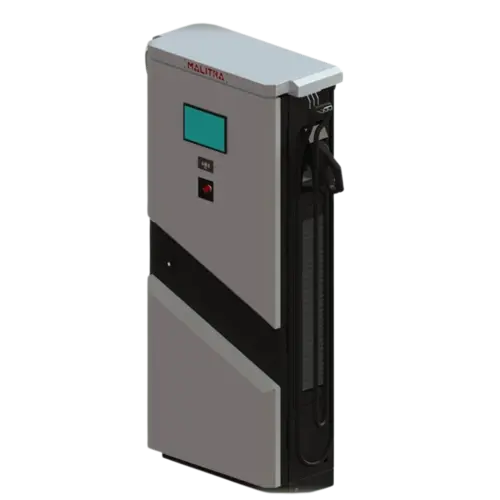
Menu
Menu

Using electricity usually involves fossil fuels, which can negatively affect the environment. Transitioning to electric cars and EVs may not fully achieve the goal of becoming more sustainable and eco-friendly.
But here’s the thing: solar-powered charging stations for electric cars are changing that. They’re like eco-friendly fuel stations using the sun. Studies show that making cars electric helps cut down on pollution. In India, by 2030, they plan to have 102 million electric cars and will need 2.9 million places to charge them. Solar power is like a super cool solution – it’s friendly to nature, not too expensive, and fits with India’s plans to help the environment. India has a huge potential to use the sun for power, way more than what it’s using now, and it’s an exciting chance for big positive changes.
Working of EV Solar Charger Stations
As we are already aware, that Solar Energy is the electricity made using the sunlight. Solar charger stations use the energy produced from the solar panels.The Solar panels stores the sunlight and then further converts the energy into electricity.
Parts of Solar Charging Station
It is important to understand, what are the parts a solar charger station is consist of and what is the work and importance of each part.

One significant challenge is the high initial cost of installing solar-powered EV charging stations. While the cost per charging unit is lower, the upfront investment needed can be substantial. To promote private investment in solar EV charging infrastructure, the government should offer more incentives and subsidies. Small-scale operators may face difficulties due to the substantial investment required for solar panels. Moreover, the absence of standardization in EV charging connectors and standards creates confusion among consumers, posing a hurdle to widespread EV adoption.
The cost of Solar charger station differs in India and USA, depending on the various factors like- size of the station, type of Solar panels and labour.
The average cost of a 7Kw solar charging station for Ev is around ₹75000 or $1000, whereas, it costs $1300 in USA.
Factors Affecting the Cost of a EV Solar Charging Station in India:
Installation of Solar EV Charging Stations At Home
Setting up a personal solar-charged EV station might sound challenging, but with a proper understanding of the requirements beforehand can make it easy.
Benefits of Having EV Solar Charging Stations
EV Solar Charging Stations offer environmental benefits by using clean energy, reduce strain on the grid, lower electricity costs, and enhance accessibility, making them a sustainable choice for electric vehicle owners.
Benefis of Solar EV Charger to Environment
Solar-powered EV charging stations are environmentally friendly. They produce electricity directly from sunlight, a clean and renewable source. This means no harmful emissions or contributions to climate change, reducing the reliance on fossil fuels for electricity generation.
Benefis of Solar EV Charger to Human
Drawbacks of Solar EV Charging Stations
With benefits everything has its drawbacks too. Here are some drawbacks of Solar EV Charging Stations:
Future Growth of Solar Charging Stations for EV
In the next few years, solar charging stations for electric vehicles (EVs) are expected to grow a lot as more people are getting interested in electric cars. With the increasing demand for the EV, they like charging them with solar power, because Solar chargers helps in reducing pollution and saving money on electricity. Different companies are working to make these charging stations better and more widespread. The government is also supporting them with incentives. As technology gets better, we can expect more solar charging stations, making it easy for everyone to use electric cars without worries. It’s a good step towards a future with clean and green transportation.






© 2024 Massive Mobility Private Limited. All rights Reserved